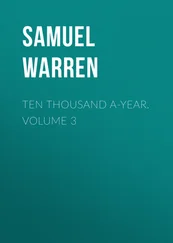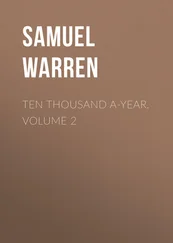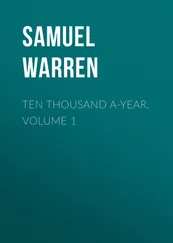Jack was furious all of sudden. He’d been mad and now he was furious. “Does she even eat? Does she even eat food? Who’s to make sure she does that, Charlie, you?” He came right up against the desk, standing over his stepfather, towering. “No. You probably have her going into raptures. Seeing God. ”
“Don’t turn this onto God. We’ve been down that path already. Don’t make about God what is about me.”
No, this is about something older even than you, Charles. Jack saw his problem in Charles’s question: What do you need that she can give you. To which the answer was: Nothing? There is nothing I need that she can give me. Which is not the same as, There is nothing I need.
The problem was older than Charles, but Jack was too old for the problem. Such things expire. Your mother never would take the full weight of you, even when you were small and tried to be easy. Now you are heavy and her bones are weak; now is not the time to try.
“I know what you think.” Charles leaned back against his chair, belly buoyed up as though separate, a large egg nesting under his checkered shirt. “I know what you think of me, my life. And I sure know how you feel about God. What I don’t know is what you feel about your mother, but I am going to hope and pray and give you benefit of the doubt that you wish her only well. As I said, I’m not your father. But so long as we’ll be under this one roof, I suggest, and suggest strongly, that we all put on a nice face until you get on that plane.”
Jack spent the next day up in his room or out by the pool when he remembered it. In the bathroom he’d had a small proud moment finding his old purple trunks still fit, though in profile under the good lighting he had to admit that they hung not quite like before. His legs were thinner — that was what caused the nylon to gape out around his thighs. Also his ass had bloomed full. Maybe it was no real achievement, for thirty-year-old trunks still to fit. Was anything outgrowable that had a drawstring. Surely it had not always been this hard to see his feet.
“Why didn’t you just take the key?” his mother said when he told her where he’d been. This was in the dining room, where sunlight still papered the walls but where, at six-thirty, it was dinnertime. Phyllis said the key because technically it was a shared pool, though because only the houses around their cul-de-sac were granted access, there was no lifeguard, and, while the women were supposed to wear swim caps, no one ever did.
“Don’t need a key.” Jack unsheathed his paper napkin from its porcelain holder. He didn’t need a key because the fence around the pool was low and, like most every partition in the neighborhood, trespassable. When he went for a swim he still tucked his wallet in his shoe, but right at the heel, not even fingering it up into the toes.
“People will think — well, they won’t know who you are,” his mother said, passing around a limp salad. Dinner at the house was Phyllis slicing a beefsteak tomato on Bibb lettuce and delivering to her son and husband a half can of tuna each.
“I’ll tell them then,” he said, reaching for the bread basket. A grid of rolls, nicely thawed and reheated, that was dinner too, and a saucer of mayo with a miniature spoon, recurrently seesawing onto the table. Jack, since that morning’s grapefruit, had already felt himself going hungry. He tried surrendering to it, embracing it as an ascetic would. Little food, plus the sun and swim. Not that the pool was much exercise — he mostly floated — but for the elixir chlorine. After a dip he liked to air-dry on his stomach, mouth resting on his bleached-smelling arms, and breathe deep, sucking up the arm hairs, which danced with the nose hairs and tickled his nostril walls.
“From their houses you’ll tell them?” His mother’s eyes ticktocked an appeal to Charles, who sat sorting the church mail, slitting envelopes open with a butter knife. She’d made her voice loud so as to reach, not just Charles, people in other rooms.
“No, guess not. Guess I’ll just wave.”
Other things chlorine did: It cleared his back of teenagery blemishes, drying them into pickable white nothings. It sluiced orange fudge from his ears, exhumed the crunchies deep inside his belly-button pit. Pool water purged him by the swallow or noseful, doses that made sterile his lungs and empty stomach. He basked monastic on his holey towel.
—
Later, upstairs on his invertebrate bed, Jack sat and he sank. Suddenly very close to his knees. The lamp went on with a tick. In the middle drawer of the nightstand, an old spoon, forsaken. He used to smuggle up ice cream, cups of yogurt, in zippered jackets. Phyllis had complained to the maid about missing silver.
His mother, this house, Charles, always they had this effect, of reminding him why he’d built what life he had, away. No reason it should be any different this time, only a hopeless hope for something else. For the feeling of home, which he was nearly sure he used to feel, somewhere here.
He bent between his knees and drew up the quilt. He saw the curve of his own weight dipped low between the bed frames. Also, the thing he was looking for, the orange rotary phone he’d had since high school, wound in all its cords. He dropped onto his knees and crawled with it to the jack by the window, where he used to lie on the floor and look out at the sky and talk to girls, or friends from his terrible band.
The phone worked — a surprise, hearing that digital ohm. His finger was slow to find the numbers, pulling each one through and waiting for the dial to whir back around so that it felt like he was calling from another time, when he was another person. The rotary made him young and tender toward himself. The rotary and Deb, the careful way she answered, not recognizing the number, and him saying, “Hi, it’s me.”
“God,” she said somewhere in Rhode Island. “I saw the area code and thought your mother — what’s wrong?”
“Everything.”
“What happened?”
“Nothing, no. I’m just, losing my mind.” He walked his elbows out behind him, easing himself down until he was lying back that same way he used to. “Probably I’m dying.”
“You’re not dying.”
“You’re right.” He fingered the spiral cord, uncoiling it and wrapping it around his finger the opposite way. “Probably I’m not dying.”
She asked if he’d been drinking.
“I’ve been with my mother.”
“Why on earth would you go there? I’m sorry. I’m a little drunk.”
“What’s the occasion?”
“Nothing, talking to Gary. It got late.”
“Well, so.” He let go the cord and watched the bendy orange twist stubbornly back to form. “How is Gary? The worm.”
“Why do you say that?”
“Okay, fine, I’m not. He’s a worm, but I’m not saying so. Ignore me.”
Like Ruth, Deb laughed when nothing was funny. Her laugh now meant: Right, ignore you. You make it so easy for anyone to ignore you.
“Would you put the kids on please?”
“You could try in the morning. You could call around ten.”
“I think,” pressing his fingers to his lids, “I’ll be at church then,” and that she really did find funny.
—
“So,” Deb said. “How’s the Arizona project?”
“It doesn’t matter.”
“Okay. Anything from Stanley?”
“How can I care about all that while this is going on?”
“You mean multitask? I don’t know, Jack. You always seemed to before.”
“I know I’ve been…not all the way here. Or there, I guess. You know, for years — ever since that September stuff—”
“Don’t do that. Don’t use that.”
Читать дальше












